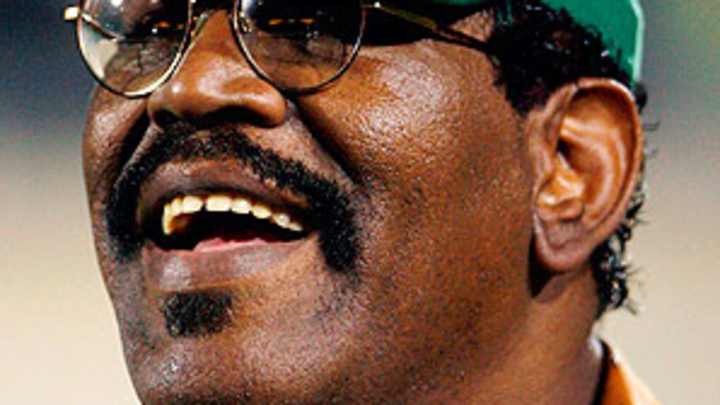Remembering Bubba Smith: Part actor, mostly football player


Bubba Smith, who died on August 3, was a teammate of mine. I can see him giving me a stern put-on sneer in response to that claim, and in truth, Bubba and I were not football teammates.
Rather, we acted together in an ensemble as Lite Beer All-Stars back when Miller used a lot of washed-up old athletes -- and one overwhelmed sports writer -- to hustle what was then a popular new product: a low-calorie beer.
Remember? "Tastes great!" "Less filling!"
The wonderful thing about the campaign was that it thrived on stereotypes: the nearsighted umpire; the dumb blonde bombshell; and ... big, stupid jocks, ideally football players.
Enter ... Bubba Smith.
In his first commercial appearance he ripped off the beer top, saying, guilelessly, "I also love the easy-opening can." He was a natural, and he didn't mind making fun of himself.
I must say, though, that it surprised me some when he went on to a comic acting career -- best known on Police Academy -- because, on the All-Star roster, Bubba had the most trouble of all of us with lines. One time, the line he forgot was his own name. Really. We all went bananas.
At Michigan State and then with the Baltimore Colts, by which Smith was the first player selected in the 1967 NFL draft, the fans would scream, "Kill, Bubba, kill," On the field, he was a ruthless defensive end; away from the field, like so many huge athletes, Bubba was gentle and fun.
He played in two Super Bowls with the Baltimore Colts, but surely his most important appearance was in '66, when he was a senior at Michigan State, and the Spartans tied Notre Dame in one of those periodic "Games of the Century." There was also a cultural significance to that game, because the star for Michigan State was Charles Aaron Smith of Beaumont, Texas. Yes, Bubba was in that last generation of southern African-Americans who had to go north to find a college team.
Alabama finished undefeated and untied that season, but the pollsters put the Tide behind Notre Dame and Michigan State because they recognized that Alabama was only unbeaten against white people. It would soon change, precisely because of stars like Bubba Smith who forced the southern schools to take in the black players who were born and developed right there in their own backyards.
Alas, Bubba's greatness ended during a preseason game in the summer of '72, when he ran into a sideline first-down marker. It ripped up his knee horribly. Those chain-gang poles were all hard metal then, but in significant measure because of Bubba's accident, they now have more the consistency of cotton candy. Still, every time I see a player crash harmlessly into them, I think of Bubba. In a way that's his visible legacy, but that's only the less filling part. He was a gentleman of great taste and great talent.
